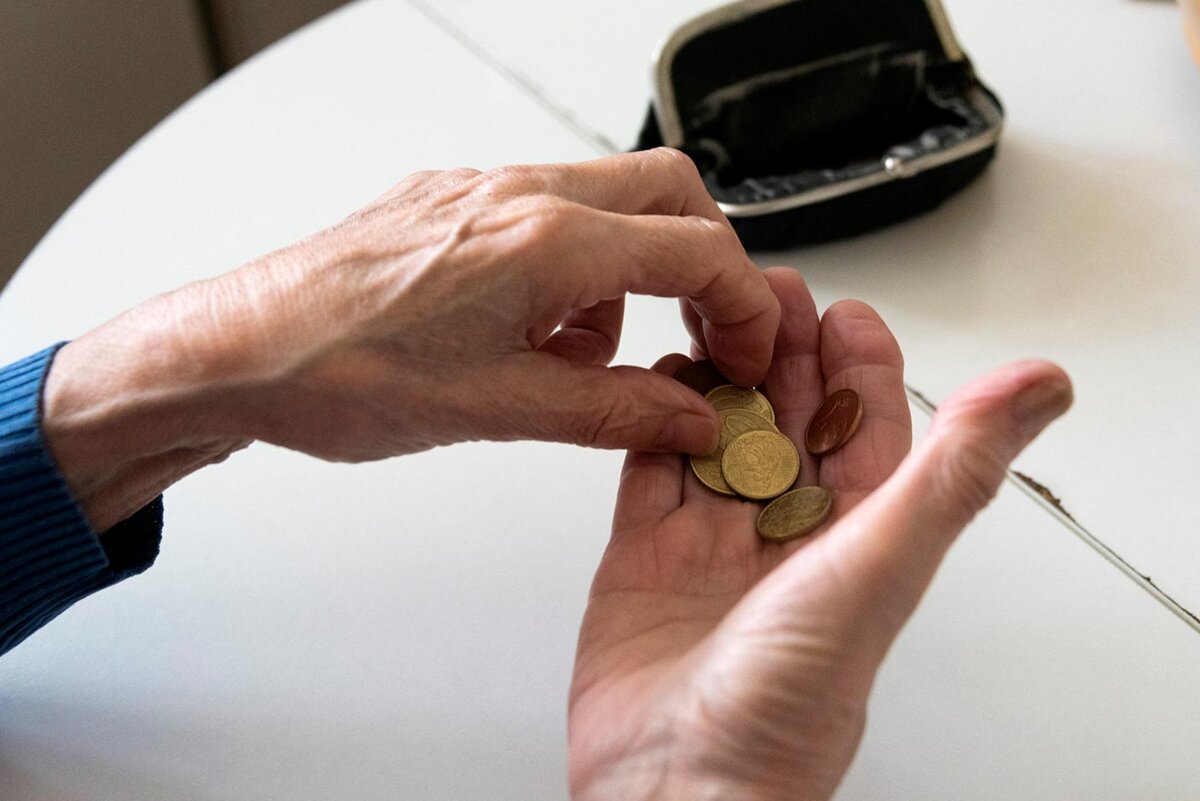While the overall inflation rate in France over the 12 months up to March this year was 5.6%, food prices over the same period rose by 15.8%, the highest jump since 1985, according to a provisional estimation by the French National Institute of Statistics and Economic Studies (INSEE).
In its report published last month, INSEE underlined that many low-income households have now reduced the amount of food they buy.Food purchases fell year-on-year by around 4.5% in 2022, and by 8.5% in December, illustrating that a section of the French population eat less as a result of rising prices.
In the interview below with Mediapart, Florence Jany-Catrice, an economics lecturer at the University of Lille, and who is a researcher with its associate centre for sociological and economic studies, sets out how the effects of inflation, beyond causing a fall in purchasing power, also create a rise in social inequalities.
-------------------------
Mediapart: Those in precarious financial situations are necessarily the worst hit by the jump in inflation. What effects does it have on the most financially fragile among them?
Florence Jany-Catrice: Inflation has very real effects on households, and to all evidence it prompts an increasing pauperization of the most economically fragile within the population. Despite the difficulties in measuring [the effects of] inflation by social category, the INSEE statistics show that there is a nearly one percent gap in inflation [rates as experienced] between the poor and the wealthy. Inflation thus causes a fall in purchasing power and at the same time an increase in inequalities.
This difference in inflation between wealthy and modest households is linked to different consumption habits. In proportion to their total spending, the poorest households spend more on food and energy, which are the two sectors where prices have exploded in a quite novel manner, for food in any case. The most modest households are therefore strongly affected.
Mediapart: It appears that the government does not intend to take action on this, except for a few isolated measures like the ‘inflation indemnity’ [a one-off payment of 100 euros to those earning less than 2,000 euros net per month]. Do you consider this to be insufficient?
F. J-C: Indeed, last year there was the idea that the poorest employees would be largely protected because the minimum wage is indexed to inflation, and similarly for those receiving social benefits which are raised according to inflation. But these rises don’t cover all of inflation, and don’t totally guarantee the maintaining of purchasing power. Above all, the indexations in general all come into effect with a delay.

Enlargement : Illustration 1

Meanwhile, concerning retirement pensions, the government has a true hold over the purchasing power of the retired. For example, in 2019 and 2020, the index was largely less than the rate of inflation, leading to an absolute loss in the purchasing power of pensioners.
Mediapart: During inflationary periods, what do the worst-off do without? What is the order between those things they decide to sacrifice and the rest?
F. J-C: In reality, the most financially insecure do not have much room for manoeuvre because what is called their ‘pre-engaged’ spending – meaning that which comes out of the [household] purse at the beginning of the month and before being able to do anything, is very high. Among the most financially modest households, this represents almost 70 percent of their expenditures. It includes the [school] canteen for their children, electricity, gas and telecommunications – which are an ever more expensive item – and, obviously, rent. All these subscriptions are difficult to cancel because of constraining contractual systems.
These expenditures are considered to be incompressible, unless one decides to no longer pay the rent and place oneself under threat of eviction, and to no longer pay service charges. The issue of evictions, like that of the bankruptcies of co-ownership properties, should be closely studied over the coming months.
Because these margins for manoeuvre are few, those in the most insecure situations will first establish a course towards the cheapest prices, to the detriment of the quality of what they consume and, if necessary, will then reduce their consumption. Now, the poorest households cut back on the most essential food, which is the heart of what allows them to live and survive.
This lack of margin for manoeuvre leads modest households to be extremely calculating, because they budget to the nearest euro, the nearest centime, having already got rid of the superfluous. INSEE showed that in 2022 there was a clear fall in spending on food, people were consuming less in quantity of foodstuffs, which is also quite a new phenomenon. We know to what extent organic produce has taken a hit since this new inflationary period, but it has now affected all categories of food products.
It is difficult in these conditions to consider that we’re looking at an incidental economic situation that has no strong consequences upon the structure of household consumption, above all given the gap in the rate of inflation between the wealthiest and poorest households.
Mediapart: What are the ways people find to survive in face of inflation? Do these include shoplifting?
F. J-C: From a statistical observation, one can understand that people who live on minimal income benefits, who are truly in a situation of great poverty, succumb to shoplifting in order to be able to eat and to face up to what they experience as hyper-inflation. It is a strategy of survival, especially as these thefts increasingly involve food products. Ultimately, such cases of shoplifting are no doubt the expression of the fact that the basic necessary expenditure of the poorest has already overtaken their standard of living.
One must place in parallel these survival strategies on the one hand, and [on the other] the [system of] spiralling prices and profits which some large companies have settled into with ease.
-------------------------
- The original French version of this interview can be found here.
English version by Graham Tearse


